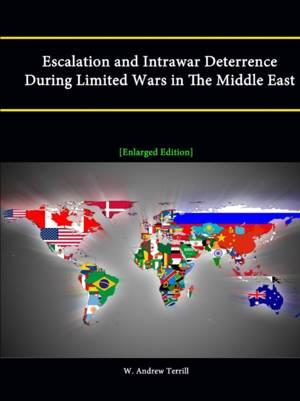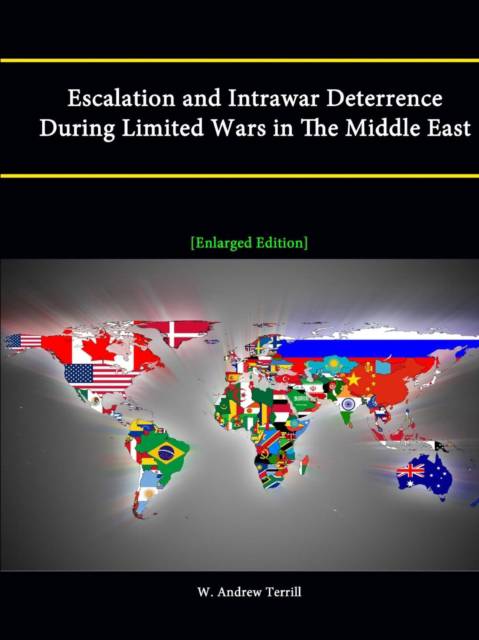
- Afhalen na 1 uur in een winkel met voorraad
- Gratis thuislevering in België vanaf € 30
- Ruim aanbod met 7 miljoen producten
- Afhalen na 1 uur in een winkel met voorraad
- Gratis thuislevering in België vanaf € 30
- Ruim aanbod met 7 miljoen producten
Zoeken
Escalation and Intrawar Deterrence During Limited Wars in The Middle East [Enlarged Edition]
W Andrew Terrill, Strategic Studies Institute
Paperback | Engels
€ 27,95
+ 55 punten
Omschrijving
A central purpose of this monograph is to reexamine two earlier conflicts for insights that may be relevant for ongoing dangers during limited wars involving nations possessing chemical or biological weapons or emerging nuclear arsenals. These conflicts are the 1973 Arab-Israeli War and the 1991 Gulf War. Both of these wars were fought at the conventional level, although the prospect of Israel using nuclear weapons (1973), Egypt using biological weapons (1973), or Iraq using chemical and biological weapons (1991) were of serious concern at various points during the fighting. This monograph will consider why efforts at escalation control and intrawar deterrence were successful in the two case studies and assess the points at which these efforts were under the most intensive stress that might have caused them to fail.
Specificaties
Betrokkenen
- Auteur(s):
- Uitgeverij:
Inhoud
- Aantal bladzijden:
- 128
- Taal:
- Engels
Eigenschappen
- Productcode (EAN):
- 9781304886859
- Verschijningsdatum:
- 7/02/2014
- Uitvoering:
- Paperback
- Formaat:
- Trade paperback (VS)
- Afmetingen:
- 216 mm x 279 mm
- Gewicht:
- 312 g

Alleen bij Standaard Boekhandel
+ 55 punten op je klantenkaart van Standaard Boekhandel
Beoordelingen
We publiceren alleen reviews die voldoen aan de voorwaarden voor reviews. Bekijk onze voorwaarden voor reviews.











